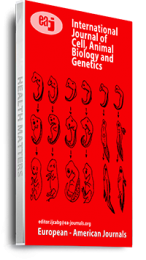Reproductive health knowledge is significant in the growth and development of young people and this significantly impact on their educational and personal outcome as they proceed to adulthood. The aim of the study was to investigate the effectiveness of reproductive health education among in-school adolescents in Andoni Local Government Area of Rivers State. The study used a randomized control-group pretest-posttest research design. A multi-stage sampling procedure was used to randomly select samples for the study. Data was collected using pretested questionnaire with reliability co-efficient of 0.89 for knowledge questions. Data was analyzed using Statistical Package for Social Science (SPSS) for windows (Version 21). Data were presented using descriptive statistics to answer research questions and inferential statistics such as ANOVA was used to test hypotheses at 0.05 level of significance. Cohen criterion for interpretation of the eta value was used to interpret the effectiveness of reproductive health education with 0.01 as small effect, 0.06 moderate effect, and 0.14 as large effect. The study findings indicated that intervention group had a higher mean knowledge score 23.76±2.98 while the control group had a mean score of 22.31±22.3. The study recommended that teachers of senior secondary schools should periodically use mixed teaching method to better incorporate old and young adolescents to increase better reproductive outcomes.
Citation: Ene-Bongilli, G. and Akoko, S. (2022) Effectiveness of Reproductive Health Education among In-School Adolescents in Andoni Local Government Area of Rivers State, Nigeria, International Journal of Cell, Animal Biology and Genetics, Vol.7, No.1, pp., 39-51,
Keywords: Andoni, Nigeria, Rivers State, reproductive health education, school adolescents

